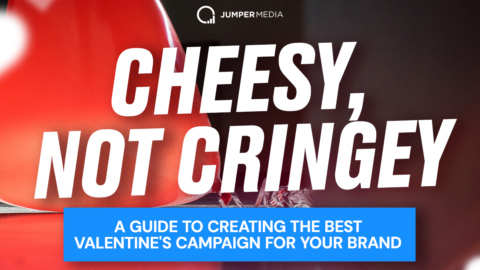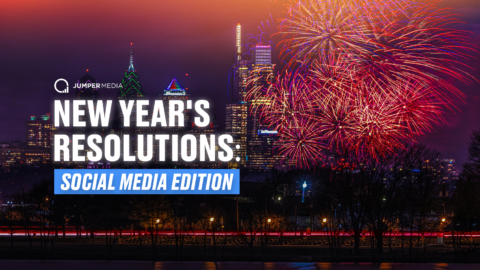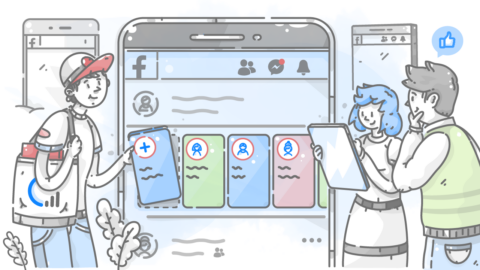Here’s what we know:
If you’re a business in the United States, your customers are on Facebook.
(Same is true of most countries, but I’ll spare you the super-size list.)
Don’t believe me? Check out these amazing stats about Facebook usage and business adoption.
65 million businesses are using Facebook Pages,
and 4 million are advertising on Facebook.
5 million businesses are using Instagram business profiles,
and 2 million are advertising on Instagram.
More advertisers mean more diversity of business types and sizes.
In Facebook’s fourth quarter, their top 100 advertisers represented less than 25% of their ad revenue, an all-time low. But Facebook’s ad revenue is always increasing, which means that smaller businesses are making up for most of the growth in ad spend.
SMBs are starting to “get it.” They are flocking to Facebook, testing things out, and when they see results (which they are) they are spending more and more money.
Facebook has more than 2.2 billion active users every day, and Facebook has the biggest reach of any social media network. By far.
Their advertising gives you the opportunity to create highly targeted audiences, too, which you wouldn’t necessarily reach through something like print or TV advertising. And when you consider that you can spend as little as $1 per day, Facebook Ads can be both incredibly effective and super affordable for small businesses.
Now for the bad news: 62% of small businesses fail when it comes to Facebook Ads.
That doesn’t mean that your business will fail, though, which is why we’re here to help.
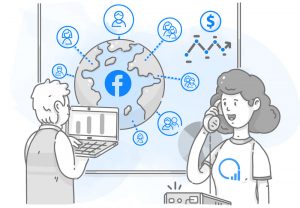
Your customers are almost definitely on Facebook, but if you don’t know the best ways to reach them, you’ll be throwing money away. Plus, when you pay for Facebook Ads that aren’t delivering results, you hand your target audience over to your competitors – the ones who are handling Facebook Ads better than you are.
In this article, we’re going to help you become part of the successful 38 percent.
We’ll talk about why Facebook may not work right now for your business. Then, we’ll go into how small businesses can set themselves up for success, covering everything from the industries that perform well (and poorly) on Facebook to how knowledge and strategy may be more important than business size. We’ll talk about the time it takes to handle Facebook marketing and help you understand what’s needed in terms of a budget for advertising.
And at the very end, we’ll tell you about the work we do here at Jumper to help businesses just like yours.
3 Times Facebook Ads Won’t Work for Your Small Business
Facebook Ads are designed to be successful; Facebook wants them to work for you because then you’ll spend more and more on them. The ads themselves are not the problem. Here are three times when you may want to rethink running a Facebook Ad.
1. Your audience isn’t spending time on Facebook.
The more time you spend getting to know your audience, the better you’ll be able to meet them where they spend their time – and it may not be Facebook.
For example, older adults may not use Facebook (or the internet) at all. You also may have trouble targeting other B2B marketers on Facebook who are used to, and sick of, seeing advertising all day long.
2. You don’t understand your audience.
Even if your audience is on Facebook, you can’t reach them if you don’t know who they are.
Facebook Ads are only as strong as their targeting, and to reach the right people you need to know your audience demographics. While a minor test budget on Facebook Ads may help, simply knowing your business better – which doesn’t cost anything – is what you need most.
To the Instagram Marketer
(A Love Letter)
Click here to see what’s inside.
3. You don’t have a hook.
It’s incredibly difficult for a consumer to take action if they don’t have something enticing to make them move. You may have the greatest product or service on the market, but a consumer who’s never heard of you won’t care.
In order to reel in new customers, you need some sort of deal, freebie or offer. Whether you don’t have one yet or you’re not willing to create one, trying to get traction from a Facebook Ad without a compelling offer is a waste.
How to Make Facebook Ads Work for Your Small Business
When deciding whether or not Facebook Ads are right for your small business, you have to take a few things into consideration, including how capable your company is of handling social media and if you have a budget to support your efforts.
Understanding How Different Industries Succeed with Facebook Ads
It’s not easy to narrow down the industries that have the most success on Facebook. There are a lot of examples of brands within certain industries that have been successful with Facebook Ads (and plenty more that haven’t), and Facebook has a number of industries that it says their ads can help with
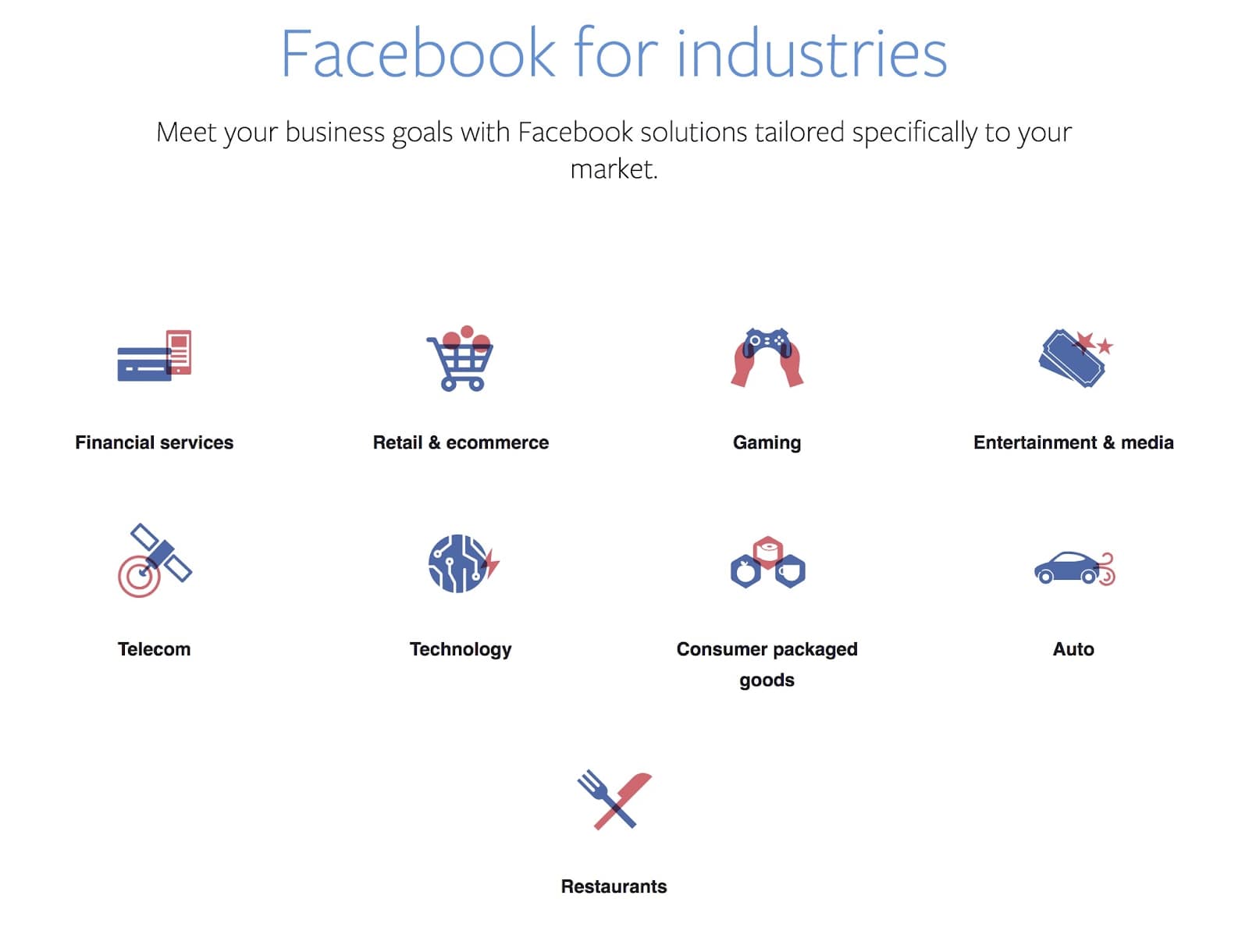
According to Entrepreneur, 38% of sales come from favoriting or sharing, particularly when a favorited or shared post alerts the soon-to-be buyer of a deal or sale. The product categories that are most socially-referred on Facebook are tech and electronics (25%), beauty and clothing (22%) and food and drink (14%). The other 39% is made up of art, design, DIY, and photo; gardening and décor; and a generic “Other” category.
This graph may also help – it shows the average CTR in Facebook ads across a number of industries. The legal industry seems to do the best, while the employment and job training industry does the worst.
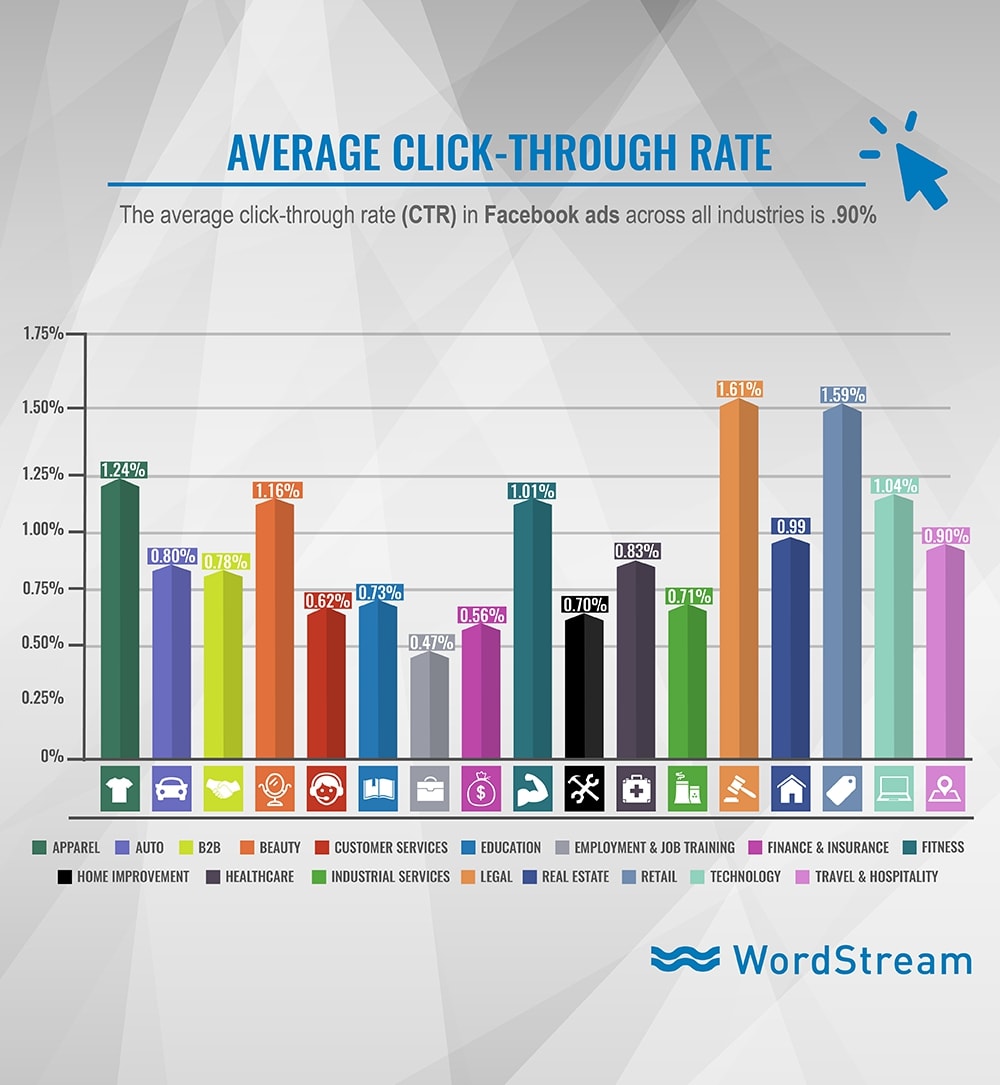
What may be more important than your actual industry is what it is you have to offer your customers and how quickly your customers will want to take advantage of those products or services.
In general, Facebook is best for direct response marketing, which means you’ll encourage your audience to take action right now and they’ll get something for it in return. For example, you have an app that you want customers to download, so you run a Facebook Ad with an exclusive offer that gives people one month of access for free. (Learn more about direct response marketing here.)
That’s why you won’t see many car ads on Facebook. Car advertisers are more interested in brand awareness because buying a car isn’t a split-second decision. Their ads are going to be in magazines and on TV.
Basically, if your business has something your audience can do online right now (downloading an e-book, making a purchase, booking a hotel room), Facebook Ads could definitely help, regardless of your industry.
Knowing How Business Size Affects Facebook Marketing
Business size doesn’t play a huge factor in Facebook Ads success – even the smallest small businesses can see results.
In this study by Social Media Examiner, 38% of the participants worked for small businesses with between two and 10 employees, and 72% of them used Facebook as an ad platform and also plan to increase usage, which leads us to assume that whatever they’re doing is working. Facebook also has its own page of Success Stories for smaller businesses, which you can check out here.
Knowledge and Strategy: More Important Than Business Size
You’re undoubtedly an expert at something. You’re an expert at running your business or leading your team; you have expertise in the products or services you sell; or you’re an industry insider and influencer, always on top of the latest news and trends.
That doesn’t mean you’re good at digital marketing, though. And if you try to be, you’re going to either (A) spend so much time learning the ropes that your business will suffer in the meantime or (B) try to handle marketing ASAP without having much knowledge about it at all.
That doesn’t mean we’re saying to never, ever learn about digital marketing. What we are saying, though, is that if you need to see a result from your Facebook Ads, like, yesterday, now is not the time to start educating yourself.
Marketing and sales funnels – which you’ll need working knowledge of to accurately setup Facebook Ads – aren’t something you can master in a weekend. Plus, even if you could buckle down and learn the necessities quickly, Facebook’s algorithm and advertising options are changing all the time, as are digital marketing trends and best practices.
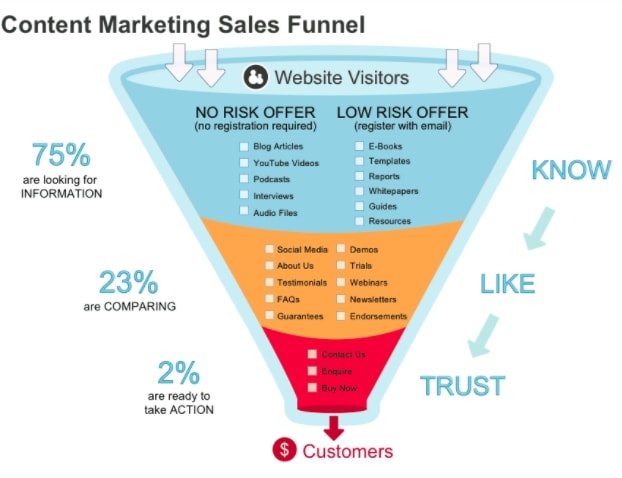
Image courtesy of NeilPatel.com
At its simplest, a Facebook Ads strategy will tell you two things: why you’re using Facebook Ads and what you want the outcome to look like. Your strategy can be highly detailed and fleshed out, too – the more clear you can get in the planning stage, the easier it’ll be to set up an ad that will deliver on your goals.
Figuring out your ad objectives and which types of ads will give you the best ROI isn’t always easy.
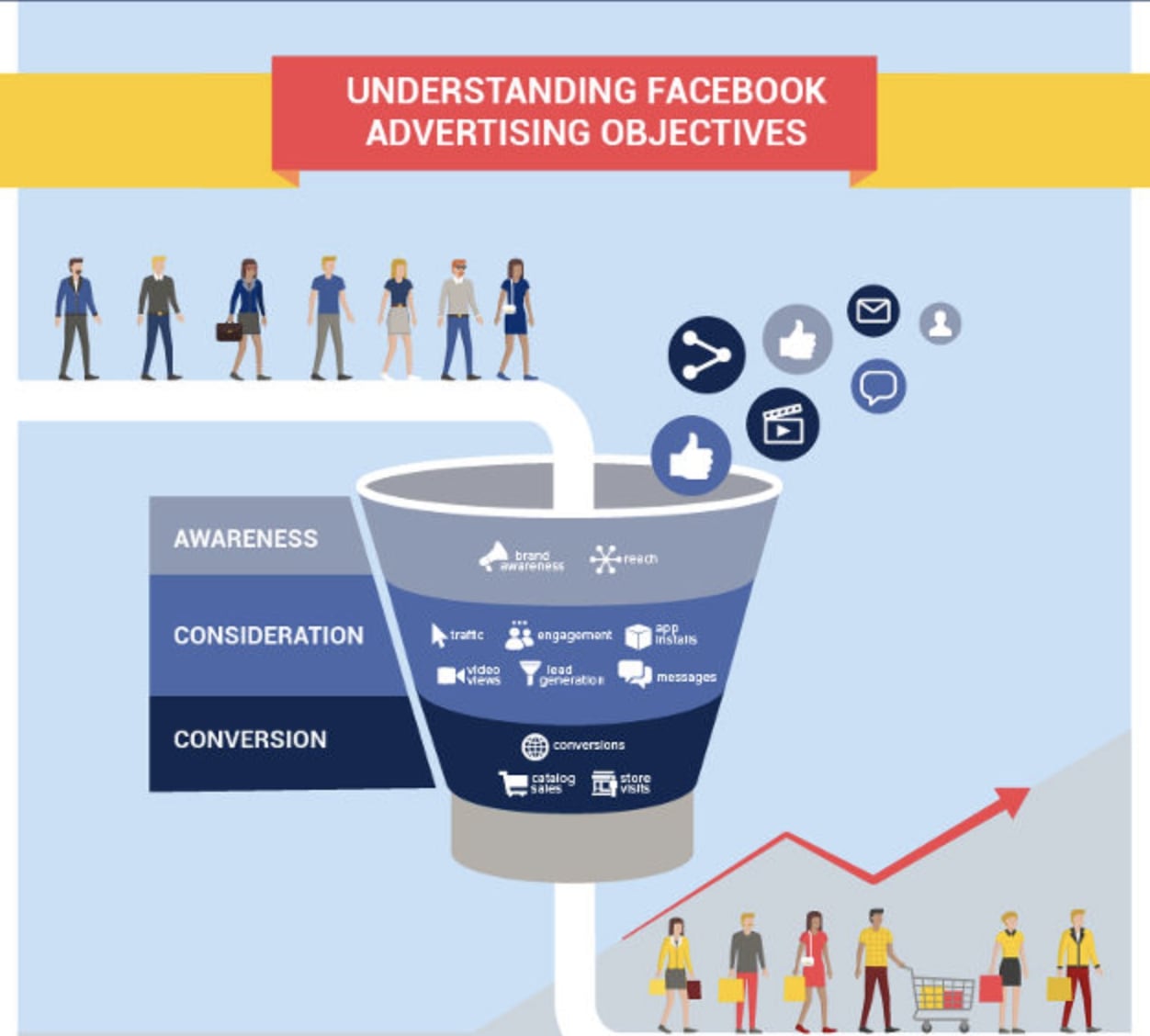
Photo courtesy of MarketingProfs
For example, if you want to increase conversions, the best ads to choose from are single image or video, carousel, slideshow, or collection. Your first step is to figure out which one of those layouts is best for you. Then you have to make sure that you have or can create the right content to fill up those ads. And then you have to track, analyze and understand the results so that you can tweak the ad as needed.
Facebook Ads are a business tool. If you don’t have a reason for using that tool or an idea of what you want that tool to do for you, you’re really just throwing ideas at the virtual wall to see if they’ll stick (spoiler alert: they probably won’t, unless you’re incredibly lucky).
Dedicating the Time it Takes to Handle Facebook Marketing
According to Manta, a majority of small businesses are spending one hour or less focused on Facebook marketing every week.
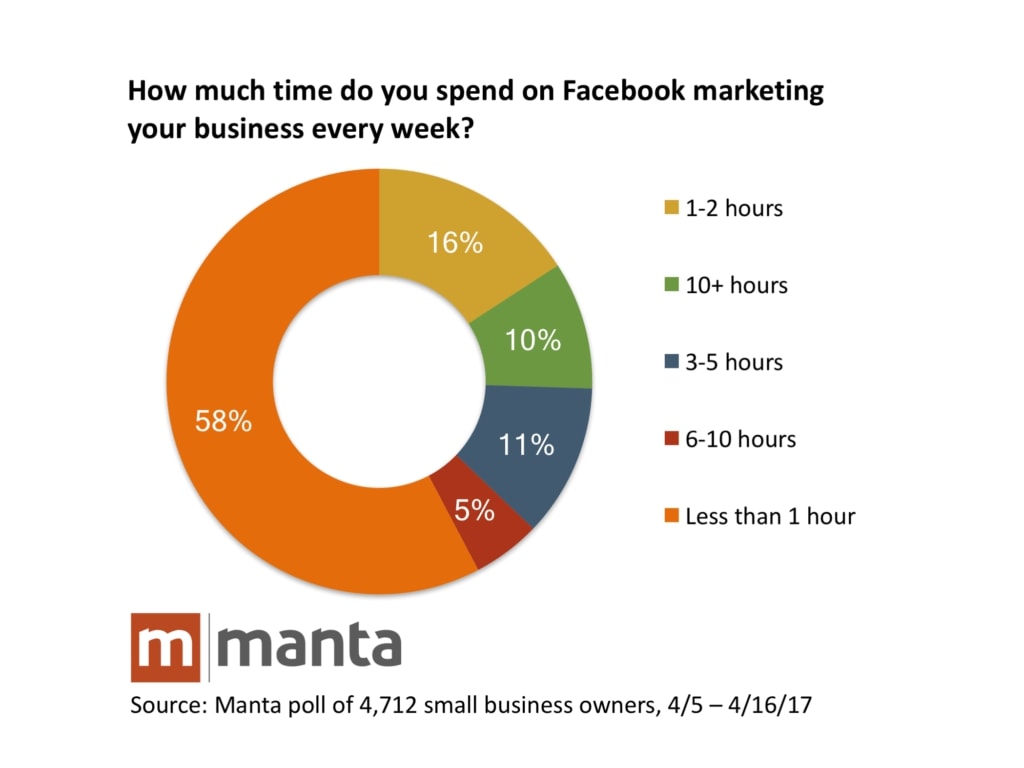
Look what’s happening on Facebook every minute, though:
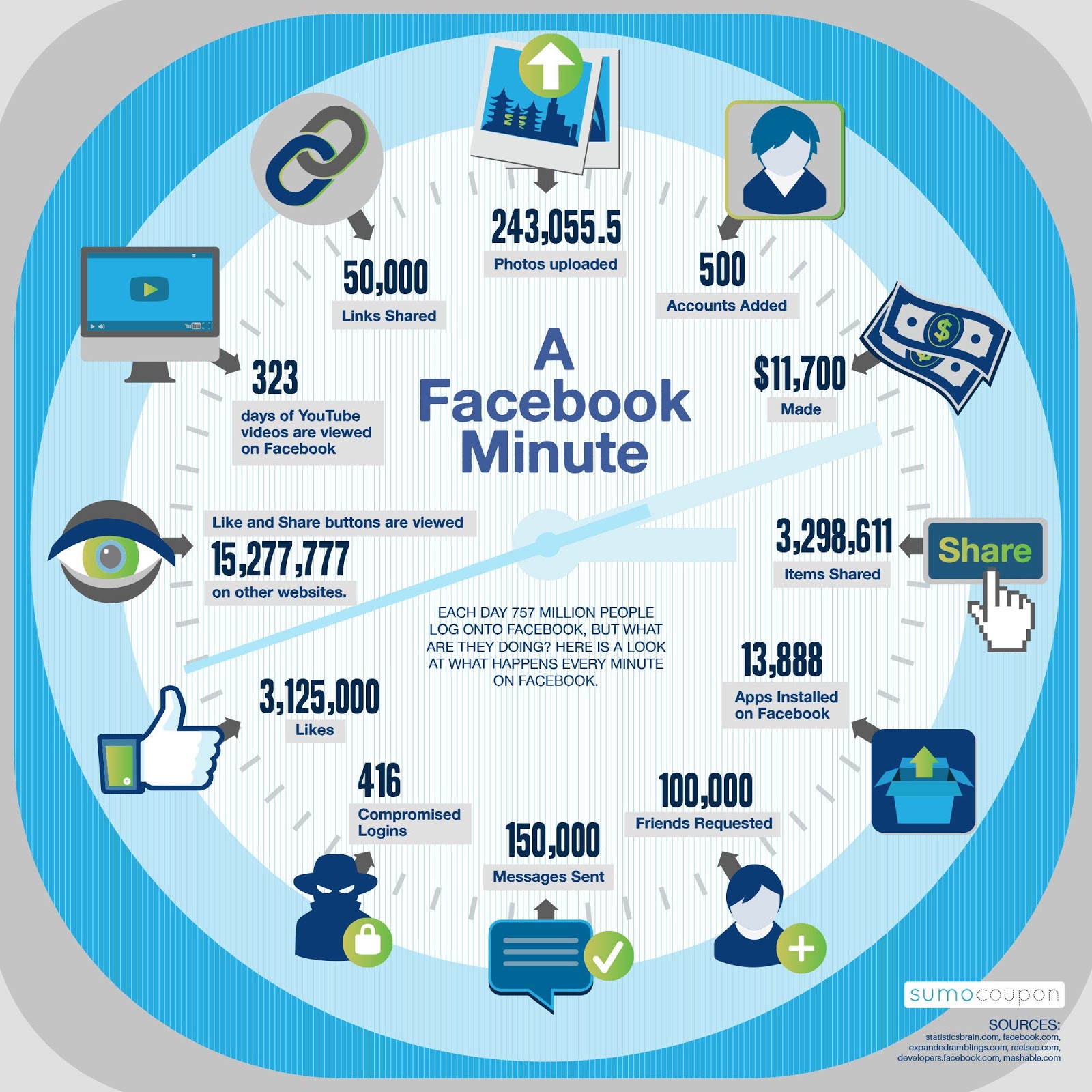
There’s a lot going on – a lot of competition and a lot of consumers making decisions. If you’re on Facebook infrequently, you’re not going to have a chance at standing out from the rest.
Yes, Facebook marketing is partly automated. You set up an ad, decide when it’s going to run and how much you want to spend, and then leave it.
However, there’s a lot more to Facebook marketing than just creating ads. And ads themselves take a lot of time to think about, create, set target audiences for, run and analyze. On top of that, you have to post at least once per day to Facebook, and some of those posts should be curated from your audience or industry, which means you have to keep an eye on what your community is doing.
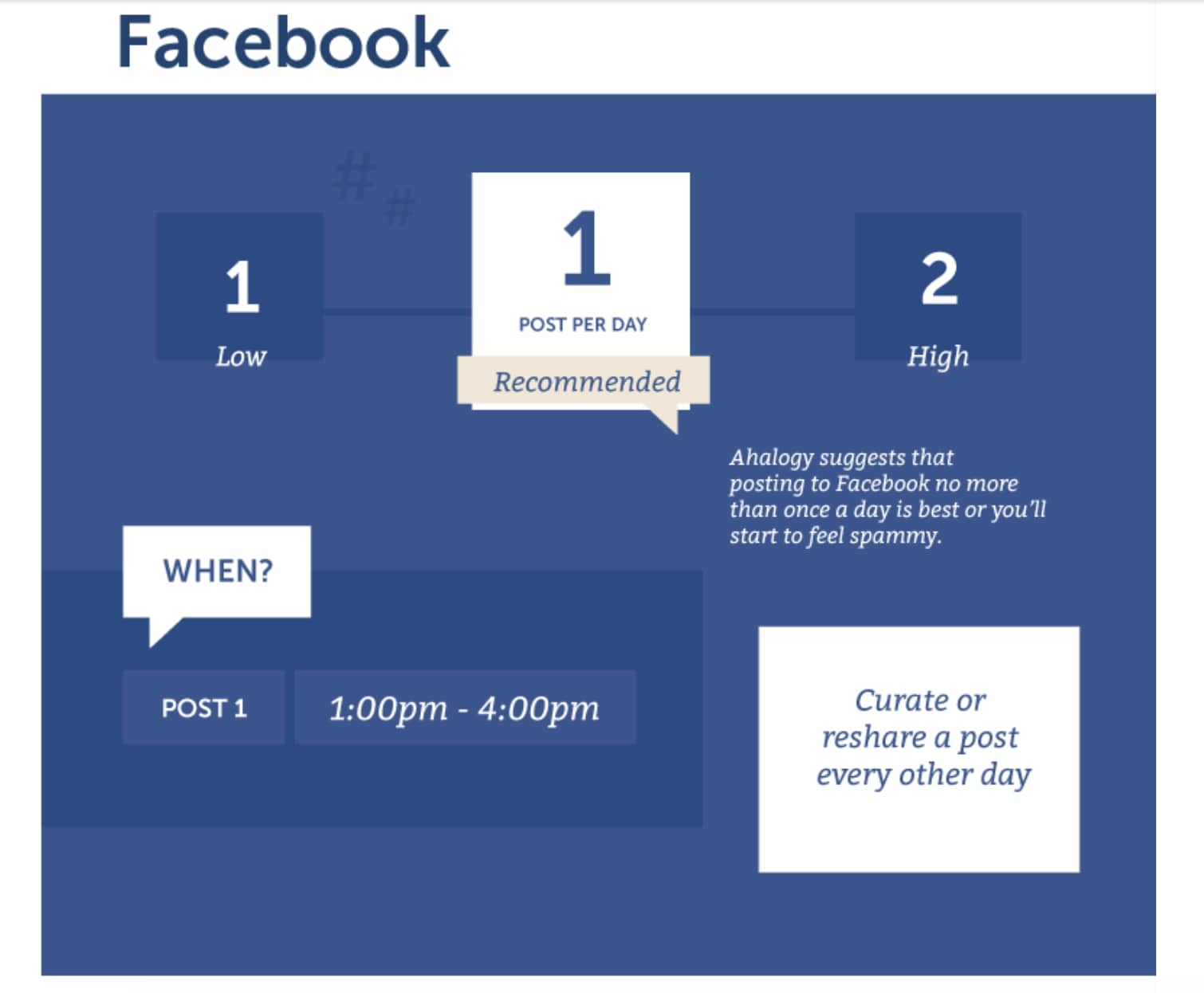
Courtesy of CoSchedule
We haven’t even mentioned responding to messages or notifications from your audience. If you can do all of that effectively, in an hour or less a week, then you should be teaching us your secrets.
Social media shouldn’t be an afterthought, especially when it comes to the ads you’re pouring your hard-earned money into. If you can only give it enough attention so that it remains in afterthought status, it may be time to outsource it.
How Much Money Do You Need to Get Started with FB Ads as a Small or Local Business?
“You don’t need a big budget to use Facebook Ads.”
You’ve heard that before, right? You still don’t know what it means, though – and why should you? “Not a big budget” isn’t a number. Does it mean you need $5 per month? $50? $500?
According to Fit Small Business, $10 spent on Facebook Ads will return approximately 17 clicks, because the average CPC is 58 cents. So, if you want 100 clicks, you’ll need to spend $58. (Actual results and cost depend on your industry and how well your ad is created, but it’s a good average to start from when determining a reasonable budget.)
How many clicks will get you results, though? ROI is a whole other animal, and figuring yours out may require a lot of testing, patience and, yes, “wasted” money (though learning is really never a waste). Basically, the more targeted your ad is, the fewer clicks you’ll need to make a sale.
At Jumper, we feel that a realistic and effective Facebook Ads budget starts with a minimum of $3,000 for the testing phase in order to determine the ad(s) that will show the best ROI. After that, we like businesses to spend a minimum of a few thousand dollars per month on ads. Remember, though: by that point, you’ll have an idea of your ROI, so you can project how much of your spend will be replaced by profit.
When it comes to a budget, your real goal should be making your budget go as far as it can. That may mean spending a ton of time learning how to create an optimized ad or hiring a professional to handle Facebook Ads for you, which could cost more upfront but could also give you a much higher (and faster) ROI.
Alternatives to Facebook Ads: Google Ads, Youtube Ads, etc.
There are plenty of alternatives to Facebook Ads, though marketers still use Facebook more than other platforms.
While Facebook is the most influential ad platform, Google isn’t far behind, followed by the less popular Spotify and Pandora.
Google AdWords is absolutely worth looking into if you want to target area-based customers or any type of high intent audience (meaning their keywords reflect something they absolutely want, like Italian restaurants in San Diego).
Google Ads aren’t great at creating demand, though, and the CPC can be high, so if your audience isn’t yet aware that they want or need your product, Facebook will be better for you.
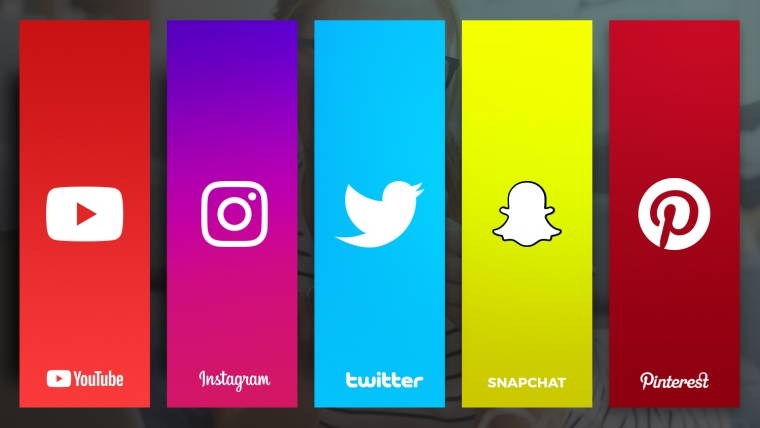
YouTube Advertising is an effective alternative to Facebook Ads if you want to run a brand awareness campaign, similar to what you’d put on TV but without the high cost of taking out a TV ad. The biggest benefit of YouTube ads is that they force people to watch your video, or at least the first several seconds of it before they can get to the content they intended to watch. The biggest hurdle for small businesses is the video production, though, and if you can’t create a quality video for YouTube, we don’t suggest using it.
While you don’t want to ignore another marketing platform that may better reach your audience, Facebook casts such a wide net and is so popular that it’s a good idea to start there.
At Jumper Media
we help businesses tell their stories through Facebook Advertising.
Facebook Ads are hard. They’re time-consuming, confusing and tedious for the brand that wants to keep operations in-house.
They’re also hard for marketing agencies. But we love the challenge.
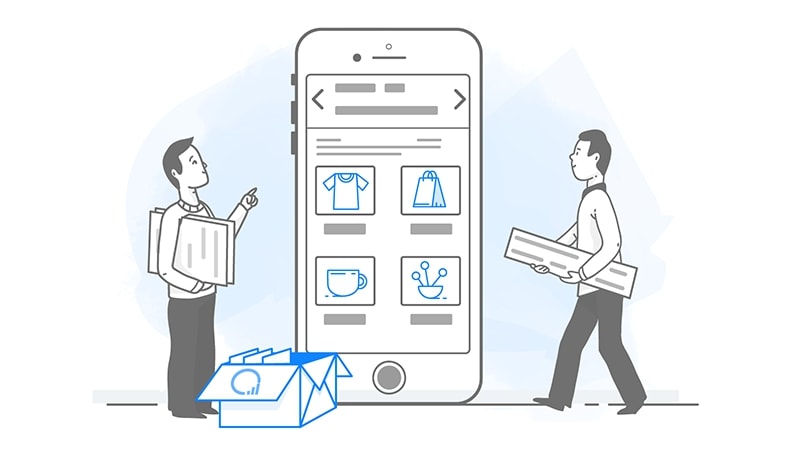
We’re experts at it. We thrive on meeting that challenge, putting our heads together to come up with the perfect strategy, and watching as that plan comes to life.
People spend a lot of time on their phones. A lot. In the United States, people spend one out of every five minutes on Instagram and Facebook. Think about that for a second.
You can’t get that kind of reach anywhere else.
It’s like the world’s biggest TV station — and it’s way, way more targeted than TV commercials. Which means you can get results for a lot fewer dollars. Moreover, you can run Facebook Ads on almost any budget. That’s why Facebook is the preferred social network of 62% of marketers.
Now, consider this: when those people engage with your brand on social media, they’re 72% more likely to buy from you. What does that mean? It means that you need a presence on Facebook and Instagram if you want to compete in today’s noisy social world.
To get an ROI from Social Media, Paid Advertising is the Only Way
Facebook will tell you all about how great their ads are, how big-name businesses have seen stellar results, and how your business can change with the right ad and placement.
We have those success stories, too.
When we worked with Gorilla Bow to show customers that they needed the portable resistance band workout as part of their fit lifestyle, we were thrilled with the results: 3.5x return on ad spend, 350% increase in total sales, and 450% decrease in CPC.
This is what our client had to say:
“Gorilla Fitness was certainly growing, but mostly within the limited audience of early adopters for new fitness products. We needed to build up trust with your everyday consumer if we were ever going to break out. Jumper Media accomplished this for us by introducing our product to new potential customers while also demonstrating the Gorilla Bow’s quality. This combined with a purposeful retargeting strategy allowed us to build up trust and eventually purchases with new, cold audiences.” – Chris Caouette
When we worked with Clubwaka to increase both brand awareness and sales, we targeted an audience of men between the ages of 25 and 34 who enjoyed being outside and were motivated by team sports. Our Facebook ads produced nearly 10x return on ad spend and multiple 5 figures within weeks. They also saw a 400% increase in online signups and 250k interactions on Facebook.
Our ad for Sunday Scaries has just as impressive results. We targeted a mostly female audience between the ages of 21 and 34 who were health-conscious, worked 40+ hours per week and were highly stressed or anxious. The brand’s overall online sales increased 400%, and we saw 7x return on ad spend, a 450% increase in total subscribers and 300% decrease in CPA.
The Jumper Media
Facebook Ad Factory
Facebook Ads Management is for the customer who knows they want to take their business to the next level, but who is honest with themselves about their current knowledge and skill level to do so. They feel that their goals are best left in the hands of experts, and they trust us to create a customized strategy that truly reflects their unique brand.
When you’re ready to see how much Facebook ads can do for your company, this is what you can expect from us.
1. We design an expert ads strategy.
Our first step is to come up with a clear, purposeful strategy. Our analytics experts and our creatives have a meeting of the minds to design your custom plan. This is when we’ll use your customer data to craft a message that will be delivered via the best content for your audience (ad copy, blog posts, photography, stop-motion, videography, etc.).
P.S. If you don’t have customer data yet, we’ll be able to narrow down your audience and test in order to define even further.
2. We put together compelling creative content.
Instead of leveraging less-than-stellar content, we’ll get to work to build creative content that will connect with your audience. Our preference is engaging, purposeful content that triggers your audience to take action.
3. We test all of it.
Everything we do gets split-tested to make sure we’re choosing the specific strategy that will work best for you. Our driving goal is to get you an impressive ROI within just the first month.
4. Then we keep creating and testing.
The creating-testing loop really never ends. Your business is changing, and so is the industry and your audience. We like to change along with them. We’re constantly looking at your data to make sure we understand where your customers are right now. We’ll create content as needed, based on what’s returning great results, what’s under-performing, and how your audience is transforming.
We learn everything you need to know about your customers, like who they are, what makes them click a link and why they need your product. We’re going to know your customers better than they even know themselves, and then we’re going to reach them where they already are: on social.
Are you ready to speak with an expert about handling your Facebook advertising? Schedule a free strategy call right now.
Need help managing your company’s Instagram,
getting more followers,
creating awesome social videos, or
optimizing Facebook Ads?

